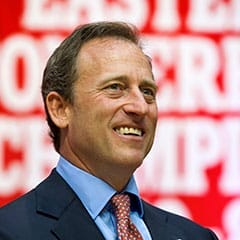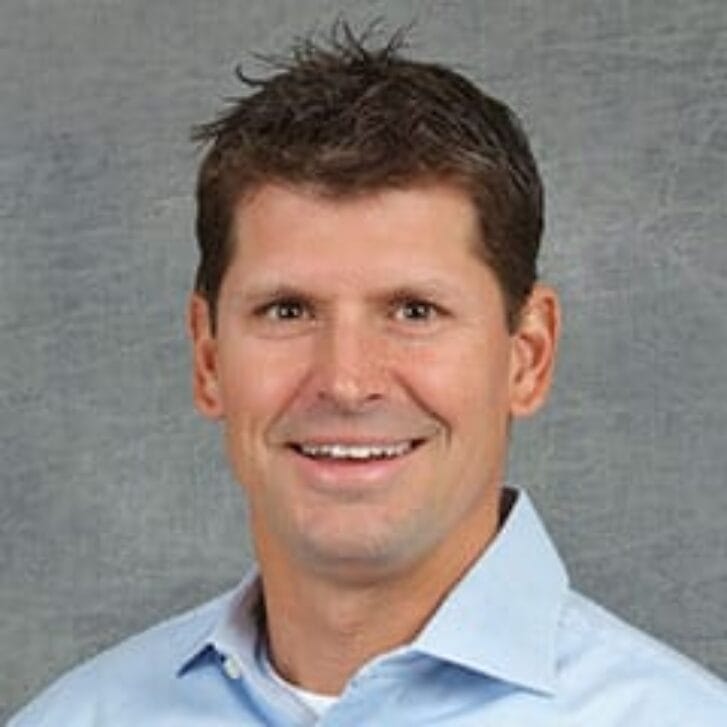Since its founding almost 25 years ago, Apollo Global Management has grown into one of the world’s leading alternative investment management firms. Now a public company, it manages $168 billion, much on behalf of pension funds and other institutions. While Apollo is perhaps best known for private equity, a lot of its success also stems from investing skill in a wide array of asset classes across its unique, integrated platform. As a co-founder, Joshua Harris, W’86, has played a key role in building the firm. Along with Founder Leon Black and Co-Founder Marc Rowan, W’84, WG’85, Harris continues to seek winning alternative investments. Harris’ accomplishments have tracked the evolution of private equity itself, making him a pioneer of modern global finance. He sat down with Wharton Magazine and offered these personal and professional insights.
WHARTON MAGAZINE: What keeps you at Apollo? What’s left to achieve?
JOSHUA HARRIS: It’s challenging. I’m around very smart people. It’s highly lucrative. That doesn’t hurt. But it’s not why I get up in the morning anymore. When you build a firm from the ground up, you feel a responsibility to your colleagues, the investors, and all the other stakeholders associated with such a large and vibrant enterprise.
WM: What’s a favorite highlight?
HARRIS: At Apollo, private equity and credit are part of our DNA. So a highlight has to be our participation in the most successful distressed deal of all time, LyondellBasell. Our funds invested about $2 billion and made about $12 billion. It started out with Apollo funds holding bank debt when the financial crisis hit. The company shrank significantly. Our funds made the first acquisition of Lyondell bank debt at 80 cents on the dollar and then kept buying as the debt traded down to a low of about 15 cents. We stuck to our convictions, and in the end our funds wound up owning a third of the bank debt at a very good price. This led to a restructuring that enabled us to bring the company through a very complicated financial reorganization. We eliminated about $20 billion in debt, and Lyondell emerged as a very strong company, which today has a $50 billion market cap. If we hadn’t been there, Lyondell might have well not made it. Along the way, we helped save a lot of jobs.
WM: Would you recommend students join an established company or get in on the ground floor, as you did?
HARRIS: I was always financially oriented. I am an intense person. I didn’t mind working hard. For me, I liked being able to utilize a lot of different skills. The allure of a startup is apparent in terms of your ability to vault yourself to a very senior position in a very short time. I do think that treating career opportunities like investments really does make sense. For students, getting a Wharton education is one way to limit their downside. But I often advise students working at large firms to build their resumes, expand networks and prepare for entrepreneurial opportunities.
WM: But look at your success at such an early age.
HARRIS: I happened to have a unique opportunity at a unique time. I was able to seize the opportunity at one of the best times to be a buyer that’s ever existed. And private equity is a very good business in that the capital is locked up. So the lights are on and the salaries are paid once you get in. When we started Apollo, I also had been at Drexel with Leon and Marc for two years, and before that had been at Wharton and Harvard Business School.
WM: How do you invest in the current climate?
HARRIS: Even in a generally overvalued market, there are interesting opportunities. We’ve invested over $3 billion in the last 12 months from our private equity funds. The opportunities are generally ones that are idiosyncratic, off the beaten path and somewhat contrarian.
WM: Like?
HARRIS: U.S. energy and financial services. Both are driven by a broad, significant need for capital. The advent of shale technology has taken North American gas from some of the most costly to the cheapest in the world. There’s literally a multitrillion-dollar investment need. In financial services, deleveraging of banks and increased regulations have reduced banks’ ability to fund nontraditional lending. Increased regulation has led to liquidation of many noncore bank assets, particularly in Europe with Basel III. We have in essence become a provider of credit to facilitate economic growth.
Read the other “Pride of Private Equity” alumni profiles, as well as watch the video interviews with student leaders, here.


























